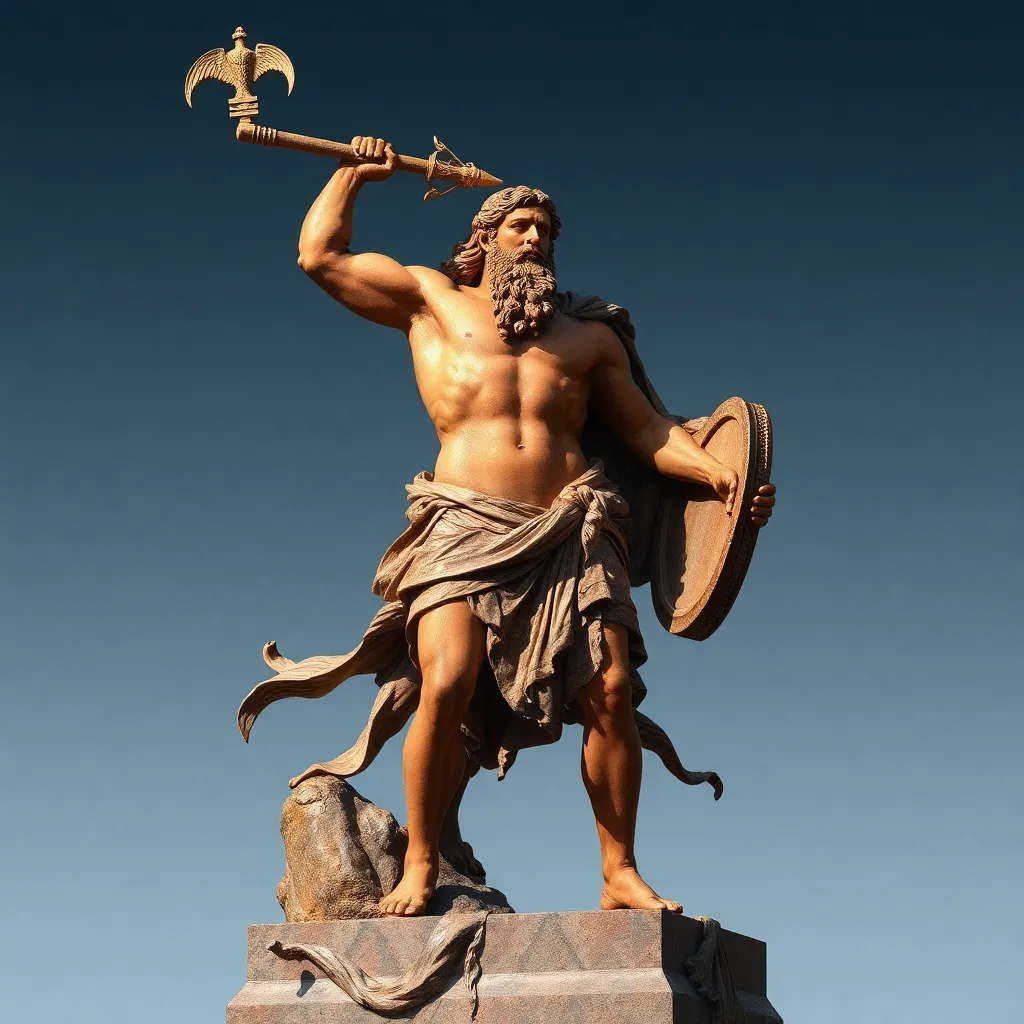The Influence of Heracles on Literature: From Ancient Texts to Modern Novels
Introduction
Heracles, known for his extraordinary strength and heroic feats, is one of the most celebrated figures in Greek mythology. Born to Zeus and the mortal Alcmene, Heracles embodies the archetype of the hero, facing insurmountable challenges and ultimately achieving redemption through his legendary labors.
His importance in ancient literature and culture cannot be overstated; he represents the ideal of heroism, courage, and the struggle against adversity. This article aims to explore the profound influence of Heracles on literature through the ages, examining his representation across various literary periods and forms.
Heracles in Ancient Greek Literature
Heracles first emerges in the rich tapestry of ancient Greek literature, notably in the epic works of Homer. In the “Iliad,” he is mentioned as a great warrior, while in the “Odyssey,” his adventures are alluded to, highlighting his status as a legendary hero.
Additionally, the works of Hesiod provide insights into Heracles’ character and his trials, particularly in “Theogony” and “Works and Days,” where his lineage and divine heritage are emphasized. Heracles also plays a significant role in Greek tragedy and comedy, serving as a central figure in plays by playwrights such as Euripides and Sophocles, where his struggles often reflect the human condition.
Heracles in Roman Literature
With the rise of the Roman Empire, Heracles was adapted and reinterpreted in various Roman texts. This transformation often reflected the cultural and societal values of the time. In Virgil’s “Aeneid,” Heracles is portrayed as a symbol of strength and perseverance, contributing to the narrative of Aeneas and the founding of Rome.
Ovid’s “Metamorphoses” also features Heracles, showcasing his adventures and emphasizing themes of transformation and identity. The legacy of Heracles in Roman culture was significant, influencing not only literature but also art and architecture, as he became a symbol of Roman virtues such as bravery and endurance.
The Renaissance Revival of Heracles
The Renaissance marked a resurgence of interest in classical mythology, with Heracles at the forefront of this revival. Authors such as William Shakespeare and John Milton reimagined the hero, embedding him within the broader context of humanism and individual struggle.
In Shakespeare’s works, references to Heracles often symbolize strength and the complexities of human experience. Milton, in “Paradise Lost,” draws on the figure of Heracles to explore themes of redemption and moral fortitude, reflecting the evolving understanding of heroism during the Renaissance.
Heracles in 19th-Century Literature
The 19th century saw a further exploration of Heracles in the works of Romantic poets and novelists, who often depicted him as a symbol of the heroic individual striving against societal constraints. In this period, Heracles became a representation of the struggle for personal freedom and self-actualization.
Notable authors such as Johann Wolfgang von Goethe and Nathaniel Hawthorne incorporated Heracles into their narratives, using him to explore themes of heroism and the human spirit. Goethe’s “Hermann und Dorothea” and Hawthorne’s various short stories reflect the enduring nature of Heracles as a complex figure grappling with his identity and purpose.
Heracles in Modern Literature and Pop Culture
In contemporary literature and popular culture, Heracles continues to resonate with audiences. His character has been adapted in various forms, including novels, films, graphic novels, and video games. These modern interpretations often reflect current societal values and issues, showcasing Heracles as a multifaceted hero.
For instance, in Rick Riordan’s “Percy Jackson” series, Heracles is reimagined as a mentor and ally, appealing to younger audiences while maintaining his mythological roots. In film adaptations, such as Disney’s animated “Hercules,” the character is portrayed with a blend of humor and heroism, making him accessible to a broader audience.
Themes Associated with Heracles in Literature
Across different literary periods, several themes are consistently associated with Heracles, including:
- Heroism: Heracles embodies the ideal of the hero, facing challenges that test his strength and resolve.
- Strength: His physical prowess is often a focal point, representing both literal and metaphorical strength.
- Struggle: The trials of Heracles, particularly the Twelve Labors, symbolize the universal struggle against obstacles.
- Redemption: Many narratives explore Heracles’ journey toward redemption, reflecting the human desire for forgiveness and growth.
The evolution of Heracles as an archetype in literature has had a lasting impact on character development and narrative structure, influencing countless stories across genres.
Conclusion
Heracles’ enduring legacy in literature is a testament to his significance as a mythological figure. From ancient Greek texts to modern novels, his character continues to inspire and resonate with audiences around the world. The themes associated with Heracles, such as heroism, strength, and redemption, remain relevant in today’s literary landscape.
As we reflect on the importance of mythological figures like Heracles, it becomes clear that they play a crucial role in shaping cultural narratives and exploring the complexities of the human experience. The stories of Heracles remind us of our struggles, triumphs, and the eternal quest for meaning in our own lives.




